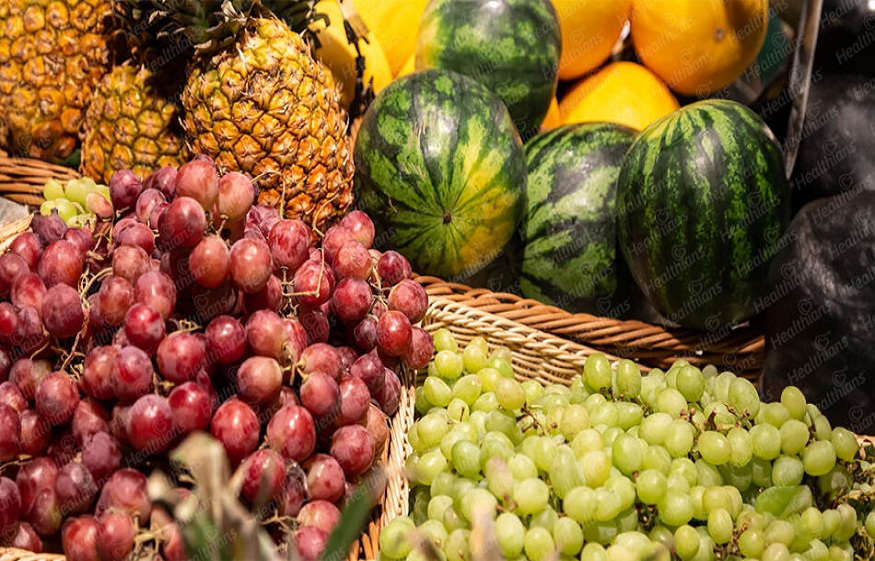Eating seasonally is a dietary habit that involves consuming fruits and vegetables when they are naturally ripe and available in your area. This practice has many benefits for health, the environment, and the local economy. Let’s discover together the top ten benefits of eating seasonally.
Your email address will be used by Digital Prisma Players to send you your newsletter containing personalized commercial offers. You can unsubscribe using the unsubscribe link integrated in the newsletter. To learn more and exercise your rights, please read our Privacy Policy.
1. Optimal flavor
Seasonal fruits and vegetables are harvested when ripe, which gives them an optimal flavor. Unlike greenhouse-grown or imported products, they do not undergo long journeys or prolonged storage. Their taste is therefore more intense and natural.
Cooking with seasonal ingredients enhances the quality of your dishes. The authentic flavors of fresh produce enrich your recipes, making every meal more delicious and satisfying.
2. Increased
nutritional value
Seasonal fruits and vegetables are harvested at their nutritional peak. They contain more vitamins, minerals and antioxidants than those that are out of season. For example, summer strawberries are richer in vitamin C than those grown in winter.
Eating nutrient-dense foods improves your overall health. You get an optimal intake of essential vitamins and minerals, which boosts your immune system, improves your energy, and prevents nutritional deficiencies.
3. Fewer pesticides and additives
Seasonal produce requires fewer pesticides and chemical additives because it is grown in natural conditions that promote its growth. It is often less susceptible to diseases and pests, reducing the need for chemical treatments.
Reducing your consumption of pesticides and chemical additives contributes to a healthier diet. Pesticide residues can have long-term adverse health effects, so choosing seasonal produce is an easy way to minimize this risk.
4. Reduced environmental impact
Seasonal fruits and vegetables, especially those produced locally, have a lower carbon footprint. They require less transportation, refrigerated storage and heated greenhouses. This helps reduce greenhouse gas emissions associated with agriculture and food transportation.
Growing seasonal produce promotes crop rotation and respect for natural cycles. This helps maintain the biodiversity of soils and agricultural ecosystems, reducing the environmental impact of intensive agriculture.
5.Support for the local economy
Buying seasonal, locally produced fruits and vegetables supports farmers in your area. This helps maintain the local economy and encourages sustainable farming practices.
By choosing seasonal products from local producers, you contribute to the vitality of your community. You establish stronger links with farmers and merchants, thus strengthening the local social fabric.
6. Reduced cost
Seasonal fruits and vegetables are often less expensive. Their abundant availability reduces production and transportation costs, which translates into lower prices for consumers.
By buying seasonal products, you can better manage your food budget. You benefit from fresh and nutritious products at more competitive prices, which allows you to vary your diet without spending more.
7. Food variety and diversity
Eating seasonally encourages you to discover and try new fruits and vegetables that you might not otherwise eat. Each season brings its own palette of flavors and textures.
More varied meals
This dietary diversity allows you to vary your meals and avoid monotony. By following the seasons, you regularly introduce new ingredients into your cooking, which stimulates your culinary creativity and your pleasure in eating.
8. Adaptationto seasonal needs
Seasonal foods often meet specific nutritional needs for each time of year. For example, vitamin C-rich citrus fruits are available in the winter to boost the immune system, while water-rich vegetables like cucumbers are available in the summer to help with hydration.
By adjusting your diet to the natural cycles, you help your body stay in balance with the seasons. This promotes overall well-being and better health all year round.
9. Less food waste
Seasonal fruits and vegetables are often consumed quickly after harvest, reducing the risk of waste. They are less likely to be lost or thrown away due to spoilage.
Eating seasonally also encourages full use of produce. You can learn to use all the edible parts of fruits and vegetables, such as carrot tops or potato peelings, to reduce waste and maximize food resources.
10.Better taste and eating pleasure
Seasonal fruits and vegetables have a more authentic and natural taste. Their freshness and optimal ripening offer a superior taste experience compared to out-of-season products.

